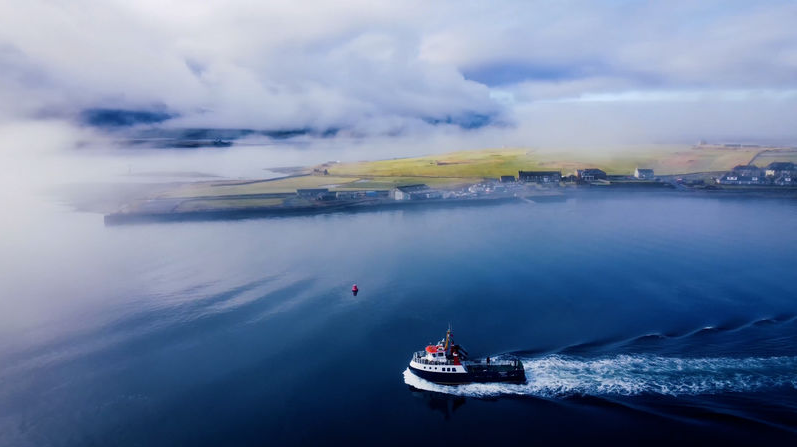The business reset needs to be turbo-charged

Salmon Scotland’s Chief Executive Tavish Scott explains the Scottish Government is saying the right things but needs to act faster
After replacing Nicola Sturgeon as First Minister, Humza Yousaf promised to reset the Scottish Government’s relationship with business.
The wider private sector had grown increasingly frustrated with several policies emerging from St Andrew’s House, in particular the deposit return scheme and a crackdown on alcohol advertising.
For our sector and our friends in the commercial fishing industry, the threat to impose Highly Protected Marine Areas also caused widespread consternation – as it did throughout rural Scotland. All three have since been shelved… for now, anyway.
The reset also included measures to re-engage with businesspeople, who felt they sometimes struggled to get the ear of the previous leader.
Yousaf launched the New Deal for Business Group in April 2023, to – and I quote – “help business and trade to thrive and maximise the opportunity of the green economy, with fairness at its heart”.
Four main pillars have since been established, focusing on a shared awareness of the economic and business environment, developing the best environment to do business, enhanced partnership working and contribution to what has been dubbed the wellbeing economy. Of key interest to us were subgroups on regulation and business partnerships. There are some expert business voices in the group and the language from the government has been encouraging.
And when I invited the Economy Secretary Neil Gray to visit DFDS Logistics in Larkhall to learn more about the salmon supply chain, he readily agreed. On his visit, Mr Gray asked a lot of good questions – and he listened.
But actions matter more than words.

First Minister Humza Yousaf
What the budget tells us
Shortly before politics shut down for the festive recess, the Scottish Government published its draft budget for 2024/25 – the first since Yousaf won the SNP leadership contest.
The scale of the challenges facing Scotland’s economy were made clear by the independent Scottish Fiscal Commission (SFC).
Economic growth will remain fragile in the near term with living standards not returning to their 2021/22 level until 2026/27, it warned.
In news that will alarm many businesses, the SFC forecast that inflation will be higher and more persistent than anticipated last year.
Employers are the key to delivering the sustainable economic growth Scotland so desperately needs.
So what was the verdict on the budget from Scotland’s business leaders? It was decidedly lukewarm.
A new income tax rate band for those earning more than £75,000 was introduced to partially plug the public spending deficit, causing further divergence from the rest of the UK. Scotland now has the highest marginal tax in the Organisation for Economic Co-operation and Development. There are concerns that this will make it harder to recruit high-skilled workers from England and overseas.
If Scotland isn’t seen as an attractive place to live and do business, that has an impact on our member companies.
We also wanted to see measures for our supply chain, which is why Salmon Scotland was among the business bodies who called for a business rates freeze.

Finance Secretary and Deputy First Minister Shona Robison
Finance Secretary Shona Robison did at least listen to us – keeping the non-domestic rates poundage at 49.8p. This is, however, already high.
There was also 100% rates relief for hospitality businesses in island communities, which will benefit those who rely on the salmon sector to ensure their rural premises remain open (and have been struggling with the economic disruption caused by problems on the ferries). Ferry fares for the Northern and Western Isles where we farm will rise 9.4% next year. The Glasgow to Edinburgh rail ticket rise is half that – not a consistent approach.
The tourism agency and hospitality sector – both of which are important allies for us – expressed widespread disappointment in the overall package of measures.
There was no rates relief for hospitality across Scotland, as there is now elsewhere in Britain, at a time when pubs in Scotland are already closing at twice the rate of those in England.
And there was anger too at the lack of a long-term growth plan. Bruce Cartwright, Chief Executive at accountancy body ICAS, said: “The Scottish Government’s budget is both short-sighted and fails to drive sustained economic growth. We continue to call for a five-year roadmap for growing the economy, which would also give Scottish businesses some reassurance and stability – something we know they want to see.”
Bruce hit the nail on the head: “Reassurance and stability.”
Action needed on housing
For our part, we were disappointed that no measures were announced to tackle the country’s rural housing crisis.
In fact, the overall budget for housing was significantly reduced, despite the emergency facing many local authorities.
We have put forward a simple solution – redirect around £10m of the money our farmers pay in licence fees to Crown Estate Scotland and spend this on rural housing for everyone living in coastal communities.
It wouldn’t cost the government a penny, so we will continue to campaign for this as MSPs return from their Christmas break.
While the budget isn’t necessarily the place to announce more streamlined regulation, we also remain concerned that this doesn’t seem top of the agenda for ministers.
In February, we reach two years since Professor Russel Griggs made his recommendations for better aquaculture regulation (accepted in full by the government) – which he said should be addressed within 12 months.
As I have written before in this column, we are fortunate to have such strong support from the Scottish Government for Scottish salmon.
I am extremely grateful to ministers who repeatedly stand up to promote the UK’s most popular fish and our number one export.
But – just like any part of the private sector – we also need to see a business environment that encourages sustainable growth.
As we enter 2024, I will continue to engage with ministers in the hope that we can make the leap from warm words to concrete action.
We are also, of course, facing an election year, so it is important to engage with all political parties. Scotland’s opposition parties are working up their own economic growth strategies.
I urge politicians, whatever rosette they wear, to listen to the voice of industry in the months ahead – and make Scotland a more attractive place for all our businesses.

